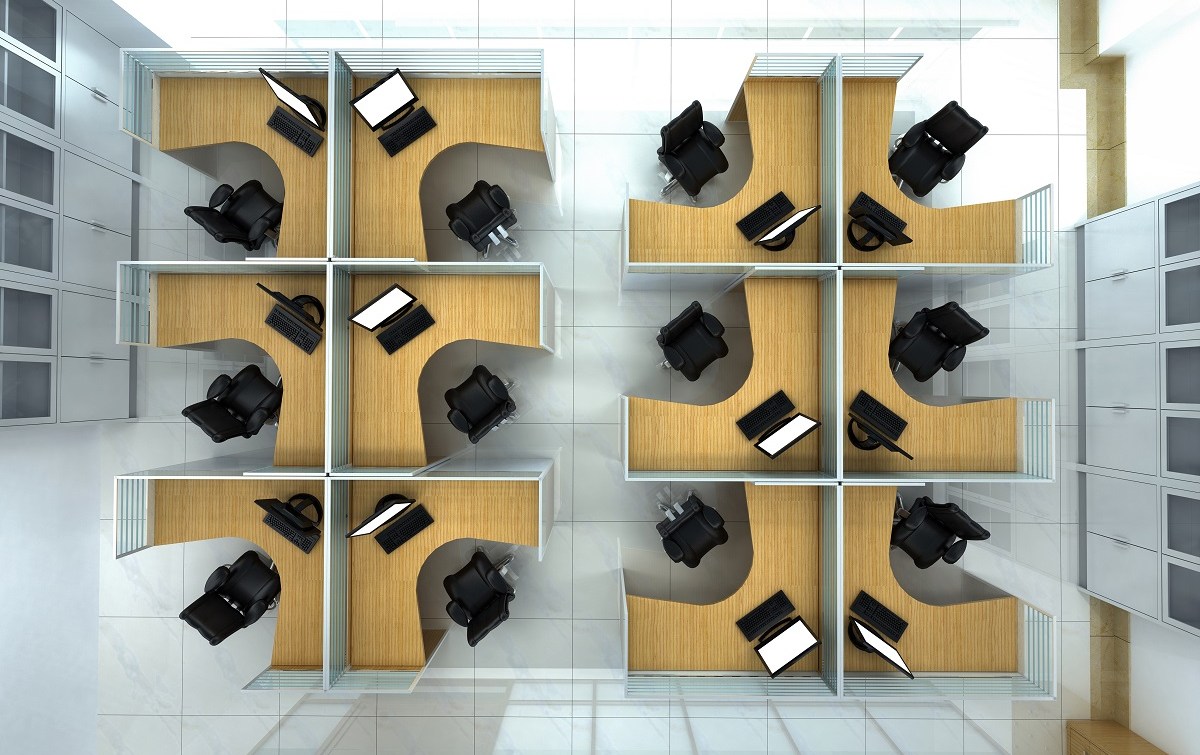Has your business become too big for your office space?
On one hand that’s great news, as it means that everything is going according to plan. The bad news is that a staff that’s working elbow to elbow is an unhappy and unproductive staff, which is one of the last things a booming business needs.
Fortunately, there are several things that can be done if you’ve unexpectedly outgrown your office space.
Redesign Your Space
If you didn’t use the services of an interior office space designer when you first moved into your office, now is the time to do so.
The odds are that there’s a lot of usable space wasted on equipment that is infrequently used, such as old-fashioned paper storage cabinets, traditional closed offices, and office furniture. Professional office space designers are experts at zeroing in on wasted space and giving you more bang for the buck from your current office suite.
The next step is to make the most of your existing space.
Modular and Open Office Plans
Two other ways to maximize the office space you currently have are by going modular and by going open.
Modular office equipment is made up of interchangeable components, making it easy for a business to build-to-suit or rearrange its space as needs change. Modular office design lets you change just a few work areas, or easily redesign your entire office quickly and inexpensively.
Open office space plans remove most of the walls in a suite, giving your space more of an urban loft feel. In addition to opening up your office suite, taking down walls will also give you a surprising amount of extra space – sometimes increasing your usable square footage by up to 10%.
Coworking Space
Coworking office space isn’t just for startups any more. Many Fortune 500 companies lease coworking space when they need to expand instead of signing a long-term traditional office lease.
Using coworking space to expand your existing business can also be a good option for accommodating a new division or work group in your company, creating a second location for your growing business, and for trying out an open office floor plan concept before redoing your entire existing space.
Sublease or Assign Existing Office Space
Maybe you’re simply bursting at the seams and no amount of redesign or office reconfiguration will work. If that’s the case, subleasing your office space or assigning your existing lease are two good options if there’s a lot of time left on your existing lease.
Subleasing or assigning space usually requires the landlord’s approval. While these terms are sometimes used interchangeably, they actually mean two different things and represent different levels of risk.
Subleasing
Subleasing space means that a business acts as the landlord. The current tenant rents out all or part of its office space to a new tenant, collects rent from that new tenant, and in turn continues to pay the landlord under the terms and conditions of the original lease – and is responsible for the lease.
That’s where the word ‘sub’ in subleasing comes from. If the new tenant you sublease to defaults on its sublease, you’re back to square one with too little space for too many people
Assigning the lease means taking the existing lease and giving it to a new tenant for the remainder of the lease term. When a lease is assigned, landlords will sometimes take the opportunity to extend the term of the lease with the new tenant. It’s a win-win-win for your business, the landlord, and the new tenant.
Relocate with the Same Owner
It’s no secret that business people – especially those working in commercial real estate – have really, really big egos.
Imagine that you’re a landlord. Would you rather have a tenant come to you and say they need to move because their business is doing so well they’ve outgrown their space… or because business is doing so poorly that they need to cut costs?
When a tenant’s business does great, it’s a big boost for the landlord as well, because it means the building owner is doing something right. Plus, having a business outgrow its space is a great sales tool to use when marketing to future tenants.
Psychology aside, many commercial office investors and property management companies own or manage more than one property. It’s quite possible that they have – or will have – bigger office space in which your business could expand.
For all you know, they’ve been talking to prospective tenants who are looking for the exact size space that your business currently has. Now they can sign the prospective tenant and renegotiate a new office lease with you for larger space.
Once again, it’s a perfect win-win-win for your business, the new tenant, and the owner of the office building.









